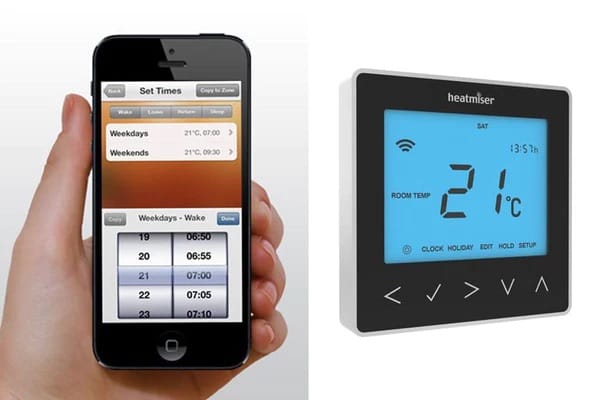Electrical Heating Systems
With the rising costs of Gas and Oil and older heating systems being expensive to maintain Electric heating systems are becoming a popular alternative.
Electric heating can offer several benefits for churches. Here are some advantages of using electric heating systems:
- Energy Efficiency
Electric heating systems can be highly energy efficient. Unlike traditional heating methods that rely on gas or oil, electric heating produces heat directly, without the need for combustion. This eliminates energy losses associated with burning fuels, making electric heating systems more efficient. - Cost Savings
Electric heating systems can provide cost savings in the long run. Electric Heating installation costs are usually lower compared to some other heating options and electric heating systems generally have lower maintenance costs and fewer operational expenses. Additionally, the availability of programmable thermostats and zone heating allows for precise temperature control, helping to reduce energy waste and further save on costs. - Environmental Friendliness
Electric heating is considered a more environmentally friendly option compared to fossil fuel-based heating systems. As electricity generation gradually shifts towards renewable energy sources, such as solar and wind, the carbon footprint associated with electric heating decreases. This can contribute to a church’s efforts to reduce its environmental impact and demonstrate a commitment to sustainability. - Improved Indoor Air Quality
Electric heating systems do not produce any combustion by-products or emissions, such as carbon monoxide, nitrogen oxides, or particulate matter. This absence of combustion-related pollutants can help maintain a healthier indoor air quality within the church, ensuring the comfort and well-being of its occupants. - Ease of Installation
Electric heating systems are generally easier to install compared to some other heating options. They do not require flues, chimneys, or complex ductwork, simplifying the installation process and potentially reducing associated costs and disruptions to the church’s structure. - Flexibility and Zoning
Electric heating systems offer flexibility in terms of design and zoning. They can be easily integrated into existing structures without major modifications. Additionally, electric heaters can be individually controlled, allowing for customised heating in different areas of the church. This zoning capability can help optimise energy usage and accommodate varying heating needs in different spaces. - Safety
Electric heating systems generally have fewer safety concerns compared to fuel-burning systems. There is no risk of gas leaks or carbon monoxide poisoning associated with combustion, providing peace of mind to the church and its occupants.
It’s important to consider the specific heating requirements, energy costs, and local climate when selecting a heating system for a church.
At DNES, we will assess how your building is used and its current energy status. We’ll take account of historic considerations and present you with the various options available. Working directly with various heating manufacturers, we can offer some of the most up to date systems available.
Whether you are looking to improve an existing system or have a completely new system installed, we’ll use our knowledge and expertise to ensure all work is conducted with the utmost of respect for the church and the people who use it. We always aim to minimise disruption, maintain a responsible approach to our work and ensure the installation has no adverse effects to the appearance of the church.
Heating Controls
With the rising costs of Gas and Oil we can design and install central heating controls to help manage timing schedules and temperature controls. Heating controls refer to the various devices and systems used to regulate and manage the temperature in a building or space. These controls allow users to adjust and maintain a comfortable level of warmth while also optimizing energy efficiency.
- Programmable Thermostats
Programmable thermostats allow users to set temperature schedules based on their daily routines. These devices can be programmed to lower the temperature during periods of absence and raise it before returning. This feature helps save energy by reducing heating when it’s not needed. - Smart Thermostats
Smart thermostats take programmable thermostats a step further by offering remote control and additional features through internet connectivity. They can be accessed and controlled using smartphones, tablets, or computers, allowing users to turn on or off the heating adjust the temperature even when they’re away. Some smart thermostats can learn from user behaviour and make automatic adjustments to optimize comfort and energy efficiency.
